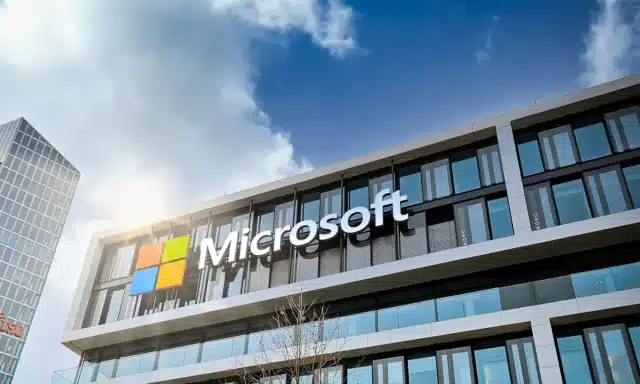Microsoft is rolling out new versions of Windows 10 and Windows 11 to Europe

March 6 was an important day in the European Union as it marked the date on which the Digital Markets Act (DMA) came into force. The new legislation places numerous requirements on "gatekeepers" (defined as "large digital platforms providing so called core platform services"), and this has already seen Apple roll out a different version of iOS to the EU than to the rest of the world.
The DMA affects a lot of tech firms, including the likes of Google and Microsoft. With the new legislation having come into force, Microsoft has implemented compliance measures, and this includes rolling out DMA compliant versions of Windows 10 and 11 to users in the EU. The company has started this process and has explained what changes and differences this includes.
See also:
- Microsoft releases KB5001716 update for Windows 10 to give Windows Update a new UI... and to push users towards Windows 11
- Microsoft is killing off Windows Subsystem for Android
- Microsoft releases PowerToys v0.79.0 with amazing new shortcuts options in Keyboard Manager
In a blog post penned by its Head of the DMA Compliance Function, Chris Nelson, Microsoft, points out that there were many ways in which Windows was already compliant with the DMA. But this does not mean that either Windows 10 or Windows 11 were fully compliant, and this is why change has been necessary.
The company details the tweaks that have been implemented:
- The Edge browser and the Bing web search functionality were redesigned so that users can uninstall these applications from Windows using the standard Windows mechanisms that are available for uninstallation if they choose to do so.
- Microsoft has enabled and provided instructions for third-party web search applications to offer web search services through the search box on the Windows task bar and to rely on any browser of their choice to show a search results page in the same way as the Microsoft Bing web search application. Similarly, Windows enables and has provided information to developers on how to create third-party news feeds in the Windows Widgets panel in the same way as Microsoft Edge.
- Microsoft also modified the sign-in experience on Windows. Prior to the DMA, Windows automatically signed users into other Microsoft products and services that combined data, including into Edge, Bing, and the Microsoft "Start" service (e.g. news, weather, etc.) when users are first signed into Windows. Windows will no longer automatically sign users into these services.
- Finally, Microsoft made a number of changes to how it handles data associated with the use of Windows by users in the EEA. For example, Microsoft has put in place new data handling practices and controls to ensure that any data collected from Windows PCs in the EEA about non-Microsoft applications running on Windows -- for example, data collected for the purpose of detecting bugs that impact those applications or Windows -- is not used for any competitive purpose against the providers of those applications.
- Similarly, Microsoft redesigned Windows data consent flows to make clear when Microsoft combines Windows data with data from other Microsoft products and services and it will obtain consent for those data combinations, including issuing new consent screens to existing Windows users where required.
For now, these changes only apply to the EU, and it seems very unlikely that Microsoft will roll out similar changes to other parts of the world unless and until it is required to do so.
Writing about the EU, Microsoft says: "The DMA compliant versions of both Windows 10 and 11 are available to users in the European Economic Area (EEA) at no charge. We have started to roll out these updates for automatic installation to Windows 10 and Windows 11 users and anticipate finishing the roll out for EEA users by early April 2024. Windows users in the EEA who want to use the DMA-compliant versions of Windows 10 or Windows 11 today can get it by turning on the "Get the latest updates as soon as they're available" feature for Windows Update in their settings menu".
Image credit: Waingro / Dreamstime.com